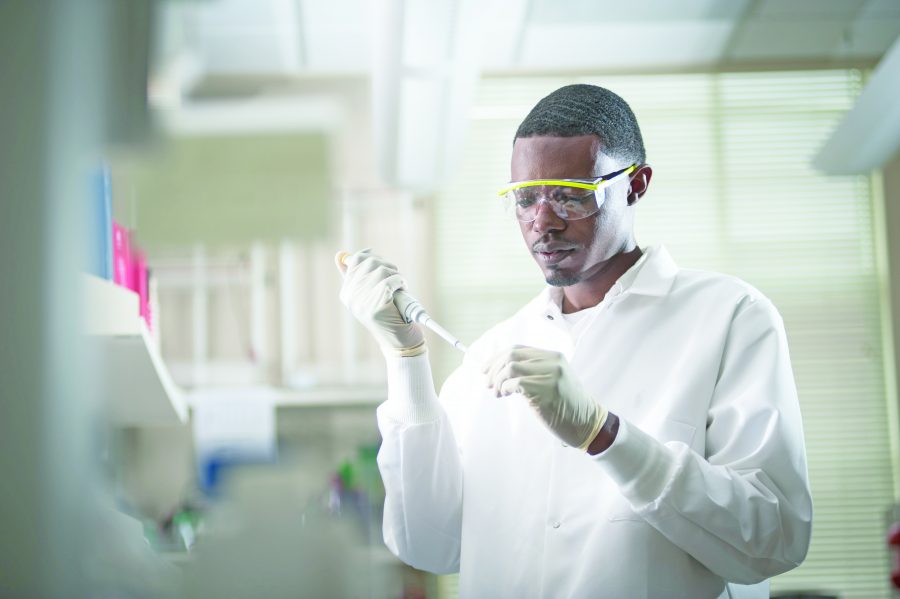Brandon Hill has always been interested in diseases. The Mississippi native headed to Jackson State University to study the effect of certain leaf extracts on cancer cells and, after completing a bachelor’s and master’s degree, became a doctoral student in biology at The University of Alabama.
“I wanted to continue [studying cancer and diseases] here, but I kind of wanted to take a different approach outside of the plant mechanistic approach and more towards virology and nanotechnology,” he said. “I wanted to continue to focus on understanding how to overcome biomedical problems associated with cancer but taking a more multidisciplinary approach [biology/engineering] using iron oxide nanoparticles and Herpes simplex virus type-1.”
Hill will travel to Lindau, Germany, on June 29 to attend the Lindau Nobel Laureate Meeting. He said there are three main components to the meeting: attending talks by the 37 attending Nobel laureates, participating in master classes held by the laureates and joining in panels with fellow attendees.
Gero von der Stein of the Council for the Lindau Nobel Laureate Meetings said thousands applied.
“Brandon Hill got selected due to his convincing research profile,” von der Stein said. “Though he has only a few important publications yet, he received some very interesting awards.”
During the week, von der Stein said, research and academics will mix with an international get-together featuring Australian and Bavarian cuisine and entertainment, respectively, occasionally framed by the Alps.
“The most esteemed scientists of our times and promising young talents will share their enthusiasm for science, discuss the latest research findings and help expand a community across generations, cultures and disciplines,” von der Stein said. “The purpose of the Lindau Nobel Laureate Meetings is bringing together young scientists and Nobel Laureates to share their knowledge, establish new contacts and discuss relevant topics.”
Hill said he was most excited about meeting Nobel laureates doing both similar research and those in other fields.
“I’m also excited about exchanging ideas with some of the younger scientists, particularly the students, as far as how we can continue to empower the scientific community and enhance creativity through innovation and discovery,” he said.
Hill’s own research builds on advances made in using the Herpes simplex virus as an engineered tool in cancer therapy. He works in the lab of Carol Duffy, associate professor of biological sciences, who said Hill is working on using the virus as a diagnostic tool as well. To do so, he spent three years developing the necessary technology.
“The next step is to use that technology,” Duffy said. “It’s kind of a fun collaboration between engineering and biology.”
When Patricia Sobecky, biological sciences department chair, nominated Hill to attend the meeting, Duffy provided a letter of recommendation. She said Hill was responsible and an absolute joy to have in the lab.
“He’s wonderful. He’s absolutely wonderful. He’s very steady. He’s like a perfect scientist,” she said. “He’s calm. He’s got an incredible work ethic. Things don’t rattle him. When experiments don’t work, he hunkers down.”
She said his response to obstacles demonstrates independence beyond the average graduate student.
“He’s the one that has a potential solution [when there’s a problem],” she said. “He’s kind of like the dream student.”
Duffy said Nobel laureates are often regarded with awe, but they were often ostracized for their forward thinking. She said Hill will get a chance to hear their personal stories of perseverance, as well as open opportunities and connections for the future. Hill will have something in common with them, she said.
“[It’s] always fun to meet your heroes,” she said. “He’s meant to be a scientist.”









